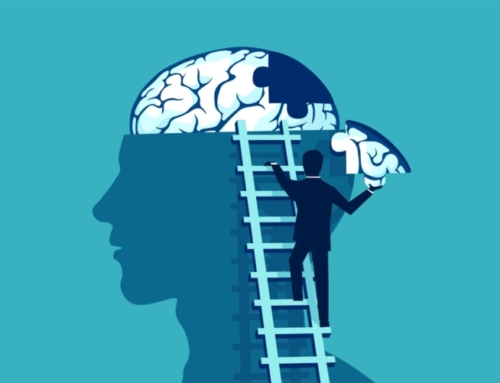Physician burnout – from bad to worse! In a physician survey conducted in 2011, the first such large survey conducted, 45.5% of physicians endorsed at least one symptom of burnout. In the survey conducted three years later, in 2014, 54.4% endorsed at least one symptom of burnout, a highly statistically significant change. This latter finding is the basis for the widely disseminated news that “Over Half of US Physicians Are Now Experiencing Professional Burnout!”
It is so sad to me that such a noble profession as ours, central to a health care system that consumes as much money as ours does, leaves so many physicians stressed, unhappy, and, dreaming of doing something else. How can this be? The answer is that the system in its myriad parts is dysfunctional. I have no insight to share with you how any of us can change this three-trillion-dollars-a-year beast, but I can share my thoughts on how to make it better for you. Improving the work lives of individual physicians may be a place to start to reform the system as a whole; eventually medical centers, clinics, and insurers may need to change if they want to attract us and the work we do. After all, without physicians, the whole thing collapses.
Before I move on to suggestions for your personal well-being, let me provide some background info. First, what is burnout and how is it assessed? The most commonly used assessment tool is the Maslach Burnout Inventory, first release in 1981 and by Dr. Christina Maslach. The version used for rating physicians is the MBI – Human Services Survey for Medical Personnel and consists in 22 subjectively-rated items that focus on:
- Emotional exhaustion: feelings of being overextended and overwhelmed and emotionally drained
- Depersonalization: impersonal responding to patients and co-workers, and cynicism
- Personal accomplishment: feelings of lacking competence and successful achievement of working with patients
Physicians suffering from burnout are at risk of increased medical mistakes, lower professional performance, increased mental health problems, and may even contribute to higher rates of motor vehicle accidents.
What are the contributors to the burnout syndrome? One of the leading researchers in the field of physician burnout, Dr. Tait Shanafelt, summarizes: “Excessive workload, clerical burden and inefficiency in the practice environment, a loss of control over work, problems with work-life integration, and erosion of meaning in work.” One of the worst culprits is clerical burden including forced use of electronic medical records and computerized physician order entry. Stunningly, a recent “time-motion” study that followed 57 physicians for nearly 500 hours, found that on average they spent 33% on patient care and 49% on clerical duties.
How to Flourish
I was going to call this section “How to Avoid Burnout” but opted instead to focus on the opposite which is nicely captured by the concept of flourishing. Most people would rather live life pursuing a benefit rather than avoiding a detriment. Here is my list, neither complete, nor fully supported by the evidence, because there still isn’t a lot of evidence on what actually works. Please regard this as a tentative list compiled by one individual.
- Mindfulness and stress management: these individually focused interventions can make a difference. A recent meta-analysis (reference below) on interventions to decrease physician burnout found large percentage reductions (that however remained not statistically significant) in emotional exhaustion and depersonalization scores after engaging in stress reduction and mindfulness interventions. The non-significant findings may be due to inadequate statistical power or lack of effectiveness. In any case, I will discuss these interventions in future articles to help you implement them if you wish. I say it’s worth a concerted try. One aspect I want to stress about these interventions is that they are most effective when they become habitual, that is, you engage in them every day, consciously decide when in the day you will incorporate them, and then follow through regularly. They work best when they become second nature, like brushing your teeth or showering when you get up each morning.
- Healthy living habits: another intervention I recommend, especially to residents and fellows, is to do your best to maintain a healthy life-style. Being on call and working long and unpredictable hours is conducive to disrupted sleep, lack of exercise, and poor nutrition. Back in the mid 1990 I completed my residency at the University of Illinois and left for three years to work as a Senior Staff Fellow at the NIH in Maryland. I then returned to accept a faculty position and met the residents, now fourth years, that I had known as first years. I was shocked at how different many of them looked: some looked worn out and others had gained substantial weight. I realized how the years of training can prematurely age so many of us. So please do not underestimate the importance of maintaining good sleep, nutrition, and exercise habits as your foundation to flourishing. As another example, in my work with patients with borderline personality disorder, helping them establish healthy living habits formed their foundation of increased emotional stability.
- Explore your career options: one of the most depressogenic aspects of an environment for humans and other mammals is the perceived lack of control. Recall that the concept of learned helplessness was developed after experiments on dogs as they were electrically shocked under different conditions. The dogs that could not anticipate or control the shocks, gave up and no longer tried to escape from them. Therefore I think that exercising control is empowering. I do not mean to encourage you to change jobs. What I do encourage you to do is to explore various job opportunities as a mental hygiene measure. The more you become aware of just how many opportunities there are and what they’re like, the more in control you will feel. Then if you decide stay in your current position – as you likely will – it will be because you actively choose to do so and not because you feel you have no other options.
- Life waits for no one: especially when you’re early in your career, it’s easy to tell yourself you’ll start living “later.” Unfortunately, that ideal “later” may never come. So, work hard but balance that with nourishing the other parts of your life; don’t let them atrophy. I think that maintaining a balance will allow you to have a longer career during which you will help more people.
Signing off for now,
Dr. Jack
References
Shanafelt TD, Hasan O, Dyrbye LN et al. Changes in Burnout and Satisfaction With Work-Life Balance in Physicians and the General US Working Population Between 2011 and 2014. Mayo Clin Proc. 015;90(12):1600-1613
Shanafelt TD, Dyrbye LN, Sinsky C et al. Relationship Between Clerical Burden and Characteristics of the Electronic Environment With Physician Burnout and Professional Satisfaction. Mayo Clin Proc. 2016;91(7):836-848
Shanafelt TD, Dyrbye LN, West CP. Addressing Physician Burnout The Way Forward. JAMA, published online February 9, 2017
West CP, Dyrbye LN, Erwin PJ, Shanafelt TD. Interventions to prevent and reduce physician burnout: a systematic review and meta-analysis. Lancet, published online September 28, 2016
LanguageBrief
Today’s Quotes
“You were born with a song in the seat of your soul; let the life that you live be the singing of it.” – LaShaun Middlebrooks Collier
“Burnout…occurs because we’re trying to solve the same problem over and over.” – Susan Scott
“How well I know with what burning intensity you live. You have experienced many lives already, including several you have shared with me- full rich lives from birth to death, and you just have to have these rest periods in between.” – Anais Nin






Leave A Comment